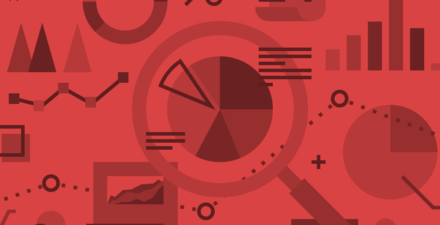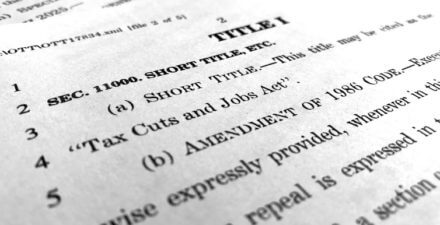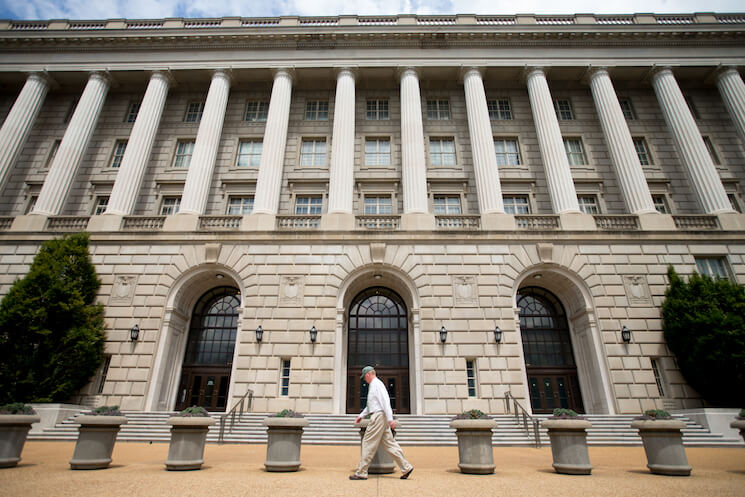Overview

“Equitable Growth in Conversation” is a recurring series where we talk with economists and other academics to help us better understand whether and how economic inequality affects economic growth and stability.
In this installment, Equitable Growth Executive Director and Chief Economist Heather Boushey talks with Emmanuel Saez, a professor of economics and director of the Center for Equitable Growth at the University of California, Berkeley. His research focuses on tax policy and inequality both from theoretical and empirical perspectives. Jointly with Thomas Piketty, he has constructed long-run historical series of income inequality in the United States that have been widely discussed in the public debate. He received his Ph.D. in economics from the Massachusetts Institute of Technology in 1999. He was awarded the John Bates Clark medal of the American Economic Association in 2009 and a MacArthur Fellowship in 2010.
In a lively and wide-ranging conversation, Boushey and Saez discuss:
- The role of revenues in academic tax research and the policy debate
- The role of deficit-financed federal tax cuts
- Optimal tax theory and the best tax system
- Kansas as an example of a bad tax system
- New research needed on global taxation
February 25, 2019
The role of revenues in academic tax research and the policy debate
Heather Boushey: Thank you, Emmanuel, for joining us today. It’s a real pleasure to get to talk to you about your work and about taxation and economics.
Emmanuel Saez: Thank you.
Boushey: You do a lot of work in public finance and inequality, and one of the biggest policy issues in economic policy here in Washington, D.C. over the past year has been the question of taxation. In 2017, Congress passed and President [Donald] Trump signed into law the new tax cut act, which cut taxes and led the Congressional Budget Office to estimate a fairly large increase in budget deficits. Government revenue levels are at the center of any discussion of tax policy here in the policy world, but in the academic world, the revenue question often takes a back seat in tax research. As you put together your research agenda or talk to your students about tax research, does this need for revenue drive the academic debate in the same way that it drives the policy debate?
Saez: At a high level, academics should be interested in the question of how big the government should be and therefore how much revenue is needed. But you can see that more in my view as a normative question—that is, should we have higher taxes to do more through public spending? There is a field of economics that asks these types of questions, but it tends to be more on the theoretical side.
Now, on the empirical side, I agree that economists have more focus on the effect of taxes on various government programs on the economy. We do analyze the effects of taxes on the economy to answer the question: If we want more revenue, what is the smart way to raise it?
Boushey: That’s so interesting because it’s such a different conversation when you’re here in Washington, D.C. Policymakers there talk about taxes all the time, but it seems there’s a disconnect between the questions that policymakers have and how scholars think about what the research questions are.
I have been invited to testify many times on Capitol Hill. Policymakers there argue that we need to lower taxes. They say, ‘We need to lower taxes because that’ll be good for economic growth.’ There isn’t a conversation about how we need to raise revenue. Many policymakers are predisposed to say, ‘Well, anything that you do that raises revenue is obviously going to be bad for the economy.’ So, you end up in a somewhat circular argument.
Saez: Yes, taxes can have effects on the economy, but if we choose to tax, it’s because we think it’s useful to have taxes to fund a number of priorities. So, obviously, you can’t judge taxes purely on the tax side. You have to see what you do with the taxes and besides, is it worth spending or not? Governments were small a century ago and with technological progress and economic development, societies decide to have bigger governments. They decide to do more through the government.
The case of education is a good example. Societies get more and more educated, but the evidence shows that mass education can only be something that’s provided by government. There’s no example of private institutions able to really provide mass education. And with aging, the need for resources for retirement is more important and these are always almost provided through the government or through institutions that are quasi-governmental that had people essentially save for retirement. You can do it through taxes. You can do it through institutions. It’s always a community or institutional thing.
And finally, for health care, you need a heavy involvement of government if you want to have close to a universal coverage, and as technology becomes more sophisticated, societies spend more and more of their national income on health. So, that’s why you need significant government spending there.
The role of deficit-financed federal tax cuts
Boushey: Let me go on to a separate question here, also about taxes. You’ve mentioned that the Tax Cuts and Jobs Act of 2017, the Trump tax cuts that were signed into law in December 2017, are going to increase the federal deficit significantly. There’s academic literature on tax smoothing in response to fiscal shocks, but that isn’t really what motivated the proponents of this particular legislation. Can you tell us a little bit about what the academic tax research tells us about deficit-financed tax cuts, and when we should use those and when we should not?
Saez: In economics, and particularly in macroeconomic business cycle analysis, the view is that having a government spend more than it takes in taxes, that is running a deficit, has a positive impact on economic output in the short run. This view comes from Keynesian theory, developed after the Great Depression, when running a deficit is actually a useful tool for macroeconomic stabilization.
Monetary policy also is a big public policy tool that can be used, but sometimes you come to a situation where you hit the limits of the use of monetary policy when the interest rates are lowered down to zero because you can’t go below zero to further stimulate the economy. That’s when government deficits can play a role, through either cutting taxes or increasing spending.
The problem with doing deficit spending is that you increase your debt burden. As you said earlier, the idea of tax smoothing is that in bad times, you’re going to run a deficit to help the economy when it needs it. But then, it means that in good times, you want to sharply lower those deficits or ideally even have surpluses that are used to reduce the debt.
So, one issue with the recent tax cut of December 2017 is that it increases the deficit in the coming years in a situation where we are not in a recession. If anything, the economy is close to full employment. In that situation, deficit spending for macroeconomic stabilization is not a good justification for the tax cut that was passed.
Optimal tax theory and the best tax system
Boushey: Let me go on now to my next question, which is in the area of optimal tax theory. You’ve written a number of papers looking at this question. Optimal tax theory seeks to identify the best tax system given a set of assumptions. We often think of policymaking as the art of the possible, and I don’t think there’s anybody here who would argue that the current tax system or any particular form that’s on the table reflects what is optimal. But, having said that, could you walk us through how people who are thinking about economic policymaking could make use of the literature on the optimal tax system?
Saez: Sure. There is a theory of optimal taxation that starts from the somewhat narrow-minded view that there is a trade-off between how big the economy is and how much we tax. That’s the standard story that you mentioned before. They’re concerned that if you tax more, maybe you are going to reduce incentives and therefore shrink the overall economic pie.
The first piece of optimal taxation acknowledges that it’s possible that the economic pie will be smaller, yet we are willing to make it smaller because tax revenue has good uses. And in the basic model, it’s used to help those at the bottom of the income distribution—people who, absent taxes, wouldn’t be necessarily able to go to work and therefore would be in a really bad economic situation. And what optimal tax theory tells you is that you want higher taxes when there is more need, then perhaps there is more need when there is more inequality in the economy. And you are willing also to have more taxes in situations where taxes are not having large negative effects on the economy. So, that’s why economists have been obsessed for many years trying to study the effects of taxes on the economy.
But the point is that even if taxes reduce incentives to work, taxes are useful and therefore, you want to do some of it. So, that’s the classic optimal tax theory. Now, when you start looking at what taxes do to behavior, in particular, when you look at taxes on the rich and how the rich respond to taxes, you realize that it’s very hard to find good evidence that taxes have a substantial real impact, say, on work, savings, business formation decisions of high income people. But what you see very clearly is that when the tax system changes, the rich are really good at finding ways to avoid taxes if there are tax avoidance opportunities in the tax code, that is loopholes.
So, take the recent example of the tax change of 2017. It lowers the tax rate on profits from pass-through businesses, partnerships, and S corporations, therefore providing an incentive if you work to organize your economic activity as a business rather than being an employee. And so, we know from past evidence that high-income people will be sophisticated and will find ways to exploit these loopholes.
So, in terms of optimal taxation, what does it mean? It means that if you want to raise revenue and possibly enact progressive tax systems, for equity reasons, then the first thing you want to do is to make sure there are as few tax avoidance opportunities as possible so that when you raise the tax rate, you don’t see much of a negative effect on your tax base. The 2017 tax cut goes in the other direction because it creates big gaps in tax levels based on how you arrange your economic activities, whether you’re a corporation, a pass-through business, or an employed person.
The third aspect I want to mention, which is more radical but I think is very important, is that taxes, and particularly the taxes on top of the distribution, play a big role in how pretax income is distributed. The idea being that when taxes on high-income earners are very high, it means that a CEO, for example, who increases his or her pay means that a very large fraction of that pay increase would go to taxes. When the top marginal tax rates are very high it reduces the incentives for top earners to be aggressive in extracting the most they can, say, from their companies and possibly at the expense of other employees.
So, in a nutshell, high tax rates at the top mean fewer incentives and therefore less power in the end for top earners to extract more resources from their business or economic activity. And indeed, if you look at the data, it is striking to see that countries such as the United States, when they had very high tax rates on top earners, you see a much more even distribution of pretax income. When top tax rates are at 70 percent or more, you don’t see sky-high CEO pay relative to average earners. In that sense, taxation—and particularly taxation at the top—can play a role in regulating and making the pretax income distribution more equitable.
Kansas as an example of a bad tax system
Boushey: Here’s a side question related to my optimal tax question. Have you looked at any of the papers about what’s happened in the states, and I’m thinking in particular of Kansas a few years ago, when the state government enacted tax cuts at the top? They cut tax rates and eliminated all taxes on pass-through entities, but then ended up having to increase taxes because the revenue drops were so sharp. Have you followed this question at all?
Saez: Yes. Kansas is an interesting case study, and I think it illustrates beautifully from a research perspective even though it’s a disaster in terms of public policy. This issue with tax avoidance, the second aspect that I discussed, is what Kansas experienced when it lowered or even effectively eliminated taxes on the profits of pass-through businesses under individual income taxes. The state provided huge incentives for high-income earners to reclassify, say, their compensation from wages toward pass-through businesses.
Essentially, these high-income earners changed their relationship with their employer to be contractual business relationships rather than an employer-employee relationships. This shift led to a big erosion of the wage income tax base in the state. So, even though the tax cut might not have had any impacts on the real economic activity that those people were making, it had a much bigger negative impact on tax revenue than would have been predicted. Mechanically, assuming that nobody was going to shift their form of economic activity created a huge deficit for the state of Kansas. And because states have to balance their budgets, it was a real crisis where the government had to decide: Are we going to cut our spending, or are we going to increase taxes? And it’s striking to see that even a Republican legislature decided that it needed to increase taxes.
As we were discussing at the very beginning, when governments have actually to balance their budgets, they realize that taxes are useful, and that brings the two pieces of the debate together. The Kansas example is also interesting because it tells you that the traditional consideration of optimal tax theory—do lower taxes increase economic activity?—doesn’t seem like a big effect because certainly Kansas didn’t experience an economic boom, at least compared to its neighbors or comparable states. I think that illustrates well the principle that has come out from earlier empirical studies—that if you change taxes, then not much happens in terms of real economic activity or what is produced, but a lot can happen in terms of shifting forms of activities to exploit tax loopholes.
The Kansas example bodes poorly for the 2017 federal tax cut.
Boushey: That’s unnerving, but it’s also good that we can learn from what happened in Kansas. I take very seriously your point that in the states, because of the balanced budget rules, the pain of tax cuts is much more apparent in real time, whereas at the federal level because the government can borrow, it’s very easy to push that conversation far off into the future, which makes it much harder to talk about the revenue question.
New research needed on global taxation
Boushey: I have one more question. You are a founding member of Equitable Growth’s Steering Committee. We have benefited so much from your guidance and your help over the years, and you’ve played a big role in helping us define our research agenda. I’d like to ask you today what’s one piece of research that you desperately wish somebody would do around the issues of taxation that we’ve been talking about today?
Saez: Working with you at Equitable Growth has been very useful to help me make the connection between what we academics do, which is basic research on optimal tax theory, but also empirical studies of taxation and how this matters in the public policy debate. That is when you are confronted with the public policy debate and you realize that academic search is not always well-geared to answer those questions.
So, in terms of a research question that is most interesting these days, I would say we have a tax system that still has not adapted well to globalization. Under both the old and new tax systems, the rise of globalization has benefited very large multinational companies that can deploy their activities worldwide.
So, I think an interesting question that is neither purely empirical nor too theoretical, but is more practical, is how do you solve that problem based on the knowledge that we’ve accumulated from empirical work? I think we academics should do more to think about those practical questions because, in the end, those practical questions are the most important. They tell you a lot about what is the most important thing to study.
Boushey: I appreciate that. I think if we want to think about the global tax system, certainly also thinking about politics and nation states and bringing that lens into it is important as well, and hopefully we can continue these conversations.
I want to thank you so much for your time, Emmanuel. This has been really illuminating, and I really appreciate your help and support and your good ideas today. Thank you.
Saez: Thank you very much, Heather.
Related
Simplified distributional national accounts
Explore the Equitable Growth network of experts around the country and get answers to today's most pressing questions!






